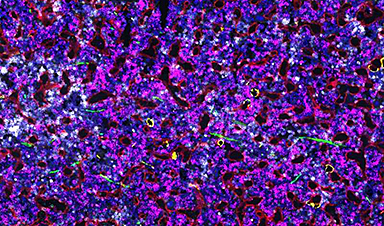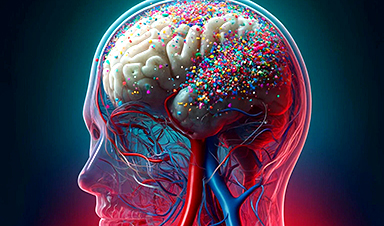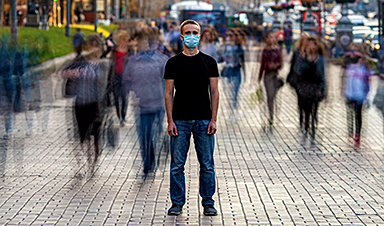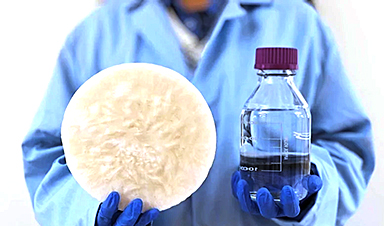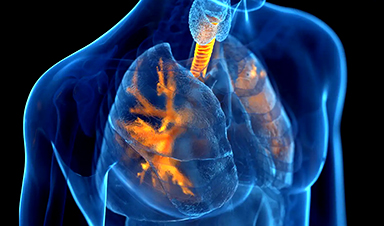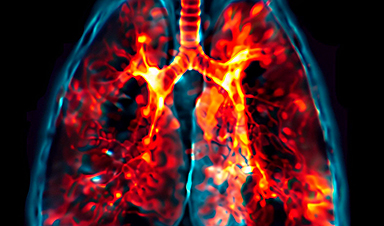Researchers from King’s College London have shown that when brain cells are directly exposed to blood taken from COVID-19 patients with delirium, there is an increase in cell death and a decrease in the generation of new brain cells. Delirium represents a state of confusion indicating that, in these patients, the COVID-19 infection had impacted the brain.
Published in Molecular Psychiatry, the study’s findings indicate a key role for the inflammatory proteins (cytokines) produced by the immune system during infection, and could help inform potential treatments to reduce symptoms of confusion, disorientation and memory deficits in COVID-19 patients.
Dr. Alessandra Borsini, NIHR Maudsley BRC Senior Research Fellow, Institute of Psychiatry, Psychology & Neuroscience, first author, said, “More and more, research is indicating that there is a neurological element to severe COVID-19 infection, but we have little understanding about what happens in the brain to produce these symptoms. Our research is the first to use blood samples from COVID-19 patients experiencing delirium to investigate how the infection impacts a process called ‘neurogenesis’ (the generation of new brain cells), which is essential to maintain intact brain functions, including memory and thought processes.
“We have found that there is a profound reduction in the generation of new brain cells and an increase in cell death, and these are likely mechanisms behind delirium, and possibly other neurological symptoms, in COVID-19 patients.”
Previous research indicates that 20 to 30% of COVID-19 patients will develop neurological symptoms such as delirium, with rates of 60 to 70% in cases of severe illness. Delirium is a state of mental confusion that can happen if you become medically unwell and is associated with adverse outcomes, including prolonged hospitalization and death.
The development of neurological symptoms in COVID-19 patients is likely to involve an overactive immune response, called the cytokine storm, with an excessive production of these multiple inflammatory proteins. Once produced by the immune cells in the body in response to the infection, these cytokines can then move from the blood to the brain and directly affect brain mechanisms. However, which cytokines are directly relevant to the development of neurological symptoms is currently unknown.
The study collected serum samples from 36 patients admitted to Guy’s and St Thomas’ NHS Foundation Trust, in London, during the first wave of the COVID-19 pandemic in the UK (March-June 2020). Half of these patients were experiencing delirium symptoms whilst the other half did not present with these symptoms at time of hospital admission.
Researchers used a validated in vitro human cell model that consists of cells from the hippocampus, a part of the brain fundamental in many cognitive, memory and learning skills. Researchers treated cells from the hippocampus directly with the serum samples and observed the impacts on cell generation and death, as well as on the levels of different cytokines.
Results showed that treatment with serum taken from COVID-19 patients with delirium increased cell death and decreased generation of new brain cells. Investigation of the serum showed that those patients with delirium had higher levels of the cytokine IL6, while there was no difference between patients on other cytokines. Treating the brain cells with the serum did produce higher levels of two other cytokines—IL12 and IL13 –suggesting there is a process or cascade where IL12 and I1L3 are generated by brain cells in response to inflammation in the body created by IL6, and together they produce the delirium.
Author Professor Carmine Pariante, Professor of Biological Psychiatry at the Institute of Psychiatry Psychology & Neuroscience (IoPPN), and Consultant Perinatal Psychiatrist at South London and Maudsley NHS Foundation Trust, said, “The role of inflammation and our immune response in COVID-19 infection is well-known, but research like ours is now revealing how it affects our brain, our thinking and our mental health.
“Through a series of tests, we have shown that it is likely that the initial production of cytokine proteins as part of the inflammatory response in COVID-19 infection triggers a cascade of other cytokines which reduce generation of new brain cells and increase cell death, leading to brain symptoms such as delirium. These neurological symptoms are very concerning for patients and their families, and the hope is that our research can help identify which treatments would be most appropriate to lessen or prevent these symptoms.”
News
Scientists Invent Plastic That Can Dissolve In Seawater In Just A Few Hours
Plastic waste and pollution in the sea have been among the most serious environmental problems for decades, causing immense damage to marine life and ecosystems. However, a breakthrough discovery may offer a game-changing solution. [...]
Muscles from the 3D printer
Swiss researchers have developed a method for printing artificial muscles out of silicone. In the future, these could be used on both humans and robots. Swiss researchers have succeeded in printing artificial muscles out [...]
Beneficial genetic changes observed in regular blood donors
Researchers at the Francis Crick Institute have identified genetic changes in blood stem cells from frequent blood donors that support the production of new, non-cancerous cells. Understanding the differences in the mutations that accumulate [...]
Shocking Amounts of Microplastics in the Brain – It Could Be Increasing Our Risk of Dementia
The brain has higher concentrations of plastic particles compared to other organs, with increased levels found in dementia patients. In a comprehensive commentary published in Brain Medicine, researchers highlight alarming new evidence of microplastic accumulation [...]
Baffling Scientists for Centuries: New Study Unravels Mystery of Static Electricity
ISTA physicists demonstrate that contact electrification depends on the contact history of materials. For centuries, static electricity has intrigued and perplexed scientists. Now, researchers from the Waitukaitis group at the Institute of Science and [...]
Tumor “Stickiness” – Scientists Develop Potential New Way To Predict Cancer’s Spread
UC San Diego researchers have developed a device that predicts breast cancer aggressiveness by measuring tumor cell adhesion. Weakly adherent cells indicate a higher risk of metastasis, especially in early-stage DCIS. This innovation could [...]
Scientists Just Watched Atoms Move for the First Time Using AI
Scientists have developed a groundbreaking AI-driven technique that reveals the hidden movements of nanoparticles, essential in materials science, pharmaceuticals, and electronics. By integrating artificial intelligence with electron microscopy, researchers can now visualize atomic-level changes that were [...]
Scientists Sound Alarm: “Safe” Antibiotic Has Led to an Almost Untreatable Superbug
A recent study reveals that an antibiotic used for liver disease patients may increase their risk of contracting a dangerous superbug. An international team of researchers has discovered that rifaximin, a commonly prescribed antibiotic [...]
Scientists Discover Natural Compound That Stops Cancer Progression
A discovery led by OHSU was made possible by years of study conducted by University of Portland undergraduates. Scientists have discovered a natural compound that can halt a key process involved in the progression [...]
Scientists Just Discovered an RNA That Repairs DNA Damage – And It’s a Game-Changer
Our DNA is constantly under threat — from cell division errors to external factors like sunlight and smoking. Fortunately, cells have intricate repair mechanisms to counteract this damage. Scientists have uncovered a surprising role played by [...]
What Scientists Just Discovered About COVID-19’s Hidden Death Toll
COVID-19 didn’t just claim lives directly—it reshaped mortality patterns worldwide. A major international study found that life expectancy plummeted across most of the 24 analyzed countries, with additional deaths from cardiovascular disease, substance abuse, and mental [...]
Self-Propelled Nanoparticles Improve Immunotherapy for Non-Invasive Bladder Cancer
A study led by Pohang University of Science and Technology (POSTECH) and the Institute for Bioengineering of Catalonia (IBEC) in South Korea details the creation of urea-powered nanomotors that enhance immunotherapy for bladder cancer. The nanomotors [...]
Scientists Develop New System That Produces Drinking Water From Thin Air
UT Austin researchers have developed a biodegradable, biomass-based hydrogel that efficiently extracts drinkable water from the air, offering a scalable, sustainable solution for water access in off-grid communities, emergency relief, and agriculture. Discarded food [...]
AI Unveils Hidden Nanoparticles – A Breakthrough in Early Disease Detection
Deep Nanometry (DNM) is an innovative technique combining high-speed optical detection with AI-driven noise reduction, allowing researchers to find rare nanoparticles like extracellular vesicles (EVs). Since EVs play a role in disease detection, DNM [...]
Inhalable nanoparticles could help treat chronic lung disease
Nanoparticles designed to release antibiotics deep inside the lungs reduced inflammation and improved lung function in mice with symptoms of chronic obstructive pulmonary disease By Grace Wade Delivering medication to the lungs with inhalable nanoparticles [...]
New MRI Study Uncovers Hidden Lung Abnormalities in Children With Long COVID
Long COVID is more than just lingering symptoms—it may have a hidden biological basis that standard medical tests fail to detect. A groundbreaking study using advanced MRI technology has uncovered significant lung abnormalities in [...]



